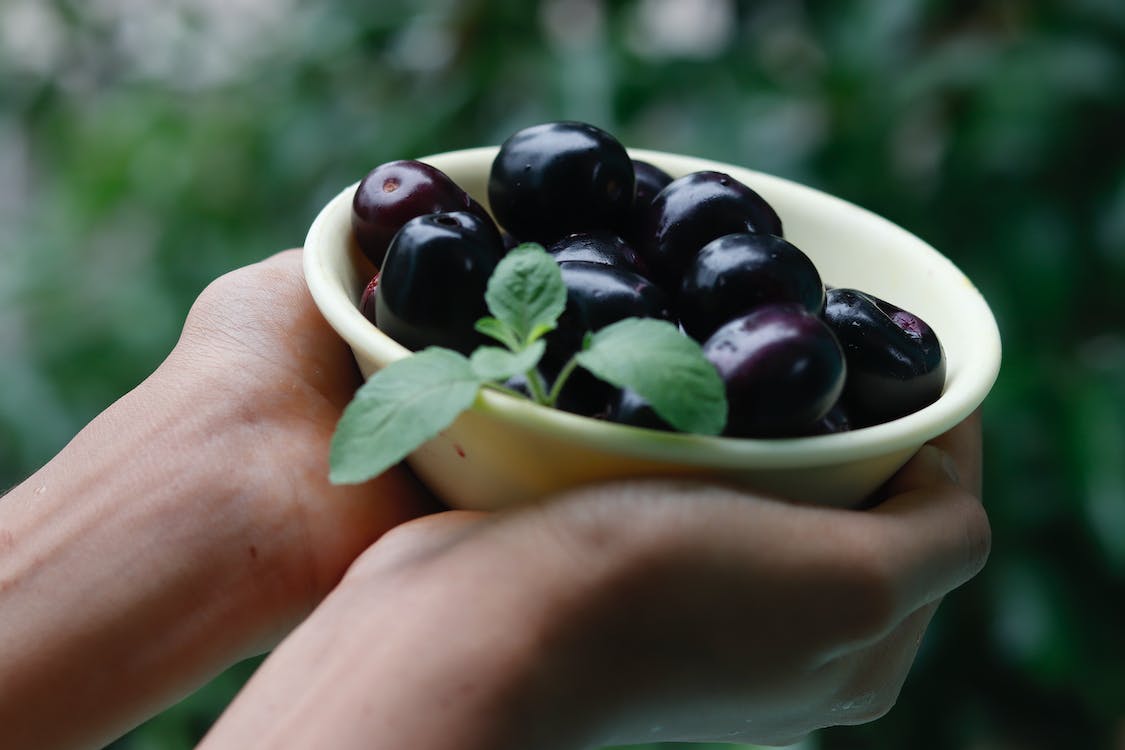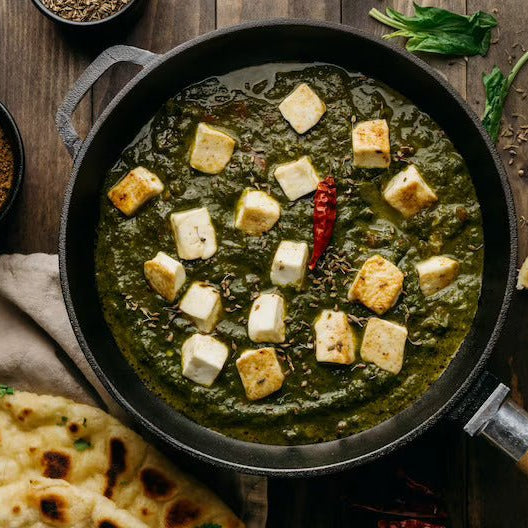
Java Plum - Health Benefits, Uses and Important Facts | Healthy Life @MACclite
Java Plum, scientifically known as Syzygium cumini, is a fruit-bearing tree native to the Indian subcontinent. Also called Jambolan or Jamun, the Java Plum tree belongs to the Myrtaceae family and is well-regarded for both its fruit and medicinal properties.
When does Java Plum grow?
Java Plum trees typically bloom and bear fruit during the summer months, between the months of May and July. The fruit matures over the course of these months, with different varieties of Java Plum having slight variations in their growing and harvesting seasons.
Where is Java Plum found?
Java Plum is commonly found across the Indian subcontinent, including India, Bangladesh, Sri Lanka, and Pakistan. It is also cultivated in other tropical and subtropical regions around the world. The tree thrives in warm and humid climates, making it a staple in many tropical gardens and orchards.
Who benefits from Java Plum? Java Plum holds significance for a wide range of individuals, from farmers and horticulturists to nutritionists and health enthusiasts. The fruit is enjoyed by people of all ages and is an integral part of traditional cuisines and cultural practices in many countries.
Why is Java Plum important?
Java Plum holds immense importance due to its diverse benefits and uses. The fruit is not only a delicious and nutritious dietary inclusion but also boasts a range of medicinal properties. It has been utilized for centuries in traditional medicine systems for its potential health-promoting effects.

Which parts of Java Plum are used?
Various parts of the Java Plum tree have practical uses:
- Fruit: The ripe Java Plum fruit is widely consumed either fresh or in processed forms like jams and juices.
- Seeds: The seeds of Java Plum are used to extract oil, which has both culinary and therapeutic applications.
- Leaves: Java Plum leaves are used in traditional remedies and herbal preparations.
Whose traditions include Java Plum? Java Plum has been deeply ingrained in the traditional practices of cultures across the Indian subcontinent. It features prominently in Ayurveda, the traditional Indian system of medicine, as well as in other traditional healing practices.
Health Benefits of Java Plum:
- Nutrient-Rich: Java Plum is a good source of essential nutrients, including vitamins, minerals, and dietary fiber.
- Antioxidant Properties: The fruit is rich in antioxidants, which help combat oxidative stress and reduce the risk of chronic diseases.
- Blood Sugar Regulation: Java Plum has been studied for its potential to regulate blood sugar levels, making it beneficial for individuals with diabetes.
- Digestive Health: The dietary fiber in Java Plum supports digestive health by promoting regular bowel movements.
- Heart Health: Some research suggests that Java Plum may contribute to heart health by helping to manage cholesterol levels.
- Skin Care: The oil extracted from Java Plum seeds is used in cosmetics and skincare products due to its moisturizing and rejuvenating properties.
- Anti-inflammatory Effects: Compounds found in Java Plum possess anti-inflammatory properties, which may aid in managing inflammation-related conditions.
Important Facts about Java Plum:
- Glycemic Index: Despite its sweet taste, Java Plum has a relatively low glycemic index, meaning it has a slower impact on blood sugar levels.
- Traditional Remedies: In traditional medicine, Java Plum has been used to manage conditions like diarrhea, dysentery, and urinary disorders.
- Culinary Delight: Java Plum is a popular ingredient in various culinary preparations, including desserts, beverages, and pickles.
- Cultural Significance: Java Plum festivals and fairs are celebrated in different regions, showcasing the cultural and social importance of the fruit.
Java Plum, scientifically known as Syzygium cumini, is a fruit-bearing tree native to the Indian subcontinent. Also referred to as Jambolan or Jamun, this tree belongs to the Myrtaceae family and is renowned for both its fruit and medicinal properties. The Java Plum fruit, with its distinctive dark purple to black color, is a common sight during its harvest season.
Reference of Java Plum in Hindu Scripture:
Java Plum has a rich cultural and religious significance in Hinduism. In Hindu scriptures and mythology, the Java Plum tree is often associated with various deities and revered for its sacredness. Its mention in ancient texts highlights its deep-rooted presence in Indian culture.
Varieties of Java Plum:
Java Plum comes in various regional varieties, each with its unique characteristics. Some well-known varieties include:
-
Indian Black Plum (Syzygium cumini): This is the most common and widely cultivated variety in India.
-
Indian White Pear (Syzygium jambos): While not as popular as the black variety, this white variety is also cultivated for its fruit.
-
Myrtus Syzygium: This is a related species found in parts of Southeast Asia, including Indonesia.
Nutritional Value of Java Plum:
Java Plum is prized not only for its taste but also for its nutritional richness. It's a good source of essential nutrients, including:
-
Vitamins: Java Plum contains vitamins like vitamin C, vitamin A, and various B vitamins, contributing to overall health.
-
Minerals: It provides minerals like calcium, potassium, and iron, which are vital for bodily functions.
-
Dietary Fiber: The fruit is high in dietary fiber, aiding in digestion and promoting a feeling of fullness.
Health Benefits of Java Plum:
Java Plum is associated with numerous health benefits:
-
Antioxidant Properties: The fruit is rich in antioxidants, which combat oxidative stress and reduce the risk of chronic diseases.
-
Blood Sugar Regulation: Java Plum has been studied for its potential to regulate blood sugar levels, making it beneficial for individuals with diabetes.
-
Digestive Health: The dietary fiber in Java Plum supports digestive health by promoting regular bowel movements.
-
Heart Health: Some research suggests that Java Plum may contribute to heart health by helping manage cholesterol levels.
-
Skin Care: The oil extracted from Java Plum seeds is used in cosmetics and skincare products due to its moisturizing and rejuvenating properties.
-
Anti-inflammatory Effects: Compounds found in Java Plum possess anti-inflammatory properties, which may aid in managing inflammation-related conditions.
FAQs on Java Plum:
-
What is the best time to consume Java Plum? Java Plum is typically consumed during its harvest season, which falls between May and July in many regions.
-
Can Java Plum help with diabetes management? Some studies suggest that Java Plum may help regulate blood sugar levels and could be beneficial for individuals with diabetes.
-
Are there any side effects of consuming Java Plum? Java Plum is generally safe when consumed in moderate quantities as part of a balanced diet. However, excessive consumption may lead to digestive discomfort in some individuals.
-
Is Java Plum used in traditional medicine? Yes, Java Plum has a long history of use in traditional medicine, where it is employed to manage various health conditions.
In conclusion, Java Plum, with its rich nutritional profile and myriad health benefits, occupies a special place in the hearts and diets of people across the Indian subcontinent. Its cultural significance and traditional uses make it more than just a fruit; it's a symbol of wellness deeply rooted in Indian heritage. As our understanding of its potential continues to grow, so does our appreciation for this remarkable fruit.
See below our Bestsellers of Premium Cookware👇
Featured collection
-
Original price - Original priceOriginal price Rs. 19.99Rs. 19.99-Current price Rs. 19.99
Product title
Original price - Original priceOriginal price Rs. 19.99Rs. 19.99-Current price Rs. 19.99 -
Original price - Original priceOriginal price Rs. 19.99Rs. 19.99-Current price Rs. 19.99
Product title
Original price - Original priceOriginal price Rs. 19.99Rs. 19.99-Current price Rs. 19.99 -
Original price - Original priceOriginal price Rs. 19.99Rs. 19.99-Current price Rs. 19.99
Product title
Original price - Original priceOriginal price Rs. 19.99Rs. 19.99-Current price Rs. 19.99 -
Original price - Original priceOriginal price Rs. 19.99Rs. 19.99-Current price Rs. 19.99
Product title
Original price - Original priceOriginal price Rs. 19.99Rs. 19.99-Current price Rs. 19.99 -
Original price - Original priceOriginal price Rs. 19.99Rs. 19.99-Current price Rs. 19.99
Product title
Original price - Original priceOriginal price Rs. 19.99Rs. 19.99-Current price Rs. 19.99
Blog posts
-
-

What is Karahi or Kadahi? Exploring Its Best Use in 2024 | Non Stick
The kadai or karahi holds a special place, when it comes to Indian cooking,choose MACclite kadai cookware for a healthier and more enjoyable cooking experience.Read now -

Best Tawa for Roti 2024 - Guide to Choosing the Best Iron Tawa for Your Family
The roti tawa is the right tool to achieve the ideal texture and taste. Finding the perfect roti tawa for your family can be both rewarding and challenging in 2024 due to the many options available.Read now


